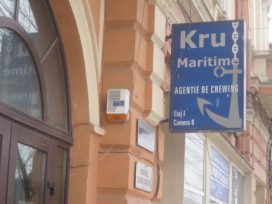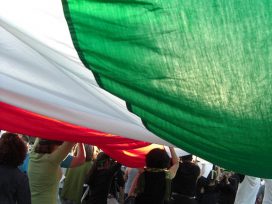Articles
Read more than 6000 articles in 35 languages from over 90 cultural journals and associates.
"The real problem is not the recession"
Blätter für deutsche und internationale Politik, Germany
As an independent, self-financing publication, Blätter is a relative exception in the journals field. So far, it has not felt the impact of recession, says editor Daniel Leisegang, who sees the big challenges in generating demand for political content and keeping pace with media change.
"Media change is a slow process"
Glänta and Ord&Bild, Sweden
A long-standing media diversity policy in Sweden means journals such as Glänta and Ord&Bild enjoy an exceptional degree of stability. The question is how, amidst the massive changes affecting other media, they can turn the particular character of the cultural journal into a strength.
"Our reach is very limited, and this makes us vulnerable"
Host, Czech Republic
Heavy dependency on steadily declining state funds makes the situation for Czech journals unsustainable, says Host editor Marek Seckar. As a small sector of the cultural budget, journals funding barely registers wider policy trends. It is precisely this inconspicuousness that gives cause for concern.
"Meritocracy is a ghost"
Intellectum, Greece
With sharp drops in advertising revenue and drastic public cuts, the financing system for Greek journals has never been less transparent. As the “networking” factor attains new levels, meritocracy seems a far-off dream says Intellectum editor Victor Tsilonis.
Internationalizing itself following a 100 per cent defunding by the Arts Council of England, Mute magazine is developing new publishing strategies in the digital field while retaining a strong commitment to the long-form text, writes director Simon Worthington.
"Professionalization, not cultural politics"
Res Publica Nowa, Poland
In Poland, policy for journals funding is all about “professionalization”, writes Res Publica Nowa editor Artur Celinski. Declining subsidies together with a sluggish sales climate obliges the young journal to diversify into areas beyond strictly publishing.
‘Culture has been marginalized, even stigmatized’
Sodobnost, Slovenia
Swingeing funding cuts with worse expected has left Slovenian journals to a death by instalments, writes Sodobnost editor Evald Flisar. The new government’s disdain for national culture combines with a unhealthy proximity to the corporate sector to marginalize the cultural community.
"The squeeze is being applied selectively"
Varlik, Turkey
A long tradition of financial independence might come to an end if Varlik’s sales decline much further, says the editor of the Turkish journal. In a climate where cultural support is heavily politicized, Varlik’s future stands or falls on the demand for critical content.
"The impact of new media remains unclear"
Vikerkaar, Estonia
Generous funding for Estonian journals, rooted in the politics of national identity, has shielded them from the effects of the crisis. Yet past continuity is no guarantee for the future, as Vikerkaar and others negotiate the transition from print to digital formats.
"A dramatic decline in advertising revenue"
Wespennest, Austria
A dramatic decline of advertising revenue has forced Austrian journal Wespennest to scale down from four issues to two issues a year. While commitment to the print format remains undiminished, the question of how to build up readerships across generations remains open, write the editors.

Decadence or renewal?
Deciding the future of the Mediterranean
Regeneration of the Mediterranean region must draw on its legacy of cosmopolitan democracy while offering prospects for ecological, energy-political and scientific development. The Mediterranean may then re-enter the European consciousness as the Mare nostrum, with all the joint responsibilities that entails.

Next stop sell-out city
Urban activism in Hamburg
Is it chance or social class that determines where one gets on and off the bus? “Right to the City” activist Nicole Vrenegor takes the number 3 from Hamburg’s outskirts to the new HafenCity development, stopping along the way to talk to people who oppose the sell out of the city.

Glocal democracy in embryo
On the pioneering role of European harbour cities
The globalization of the harbour workforce challenges the democratic political culture typical of traditional port cities. As prime examples of the convergence of economics and multi-culture, European harbour cities can lead the way in revitalizing forms of urban citizenship.
Thousands of Europeans die annually waiting for a new kidney, heart or liver. At the same time, the black-market trade in organs is thriving, as a recent scandal in Germany has shown. So should organ trading be legalized? Slavenka Drakulic, herself a two-time kidney transplant patient, argues the pros and cons.

Though it had the potential to turn violent, Iran’s Green Movement was determined to seek dialogue with the state. In doing so, it put back in the bottle the genie of violence released by the Khomeini revolution thirty years earlier, writes Ramin Jahanbegloo.